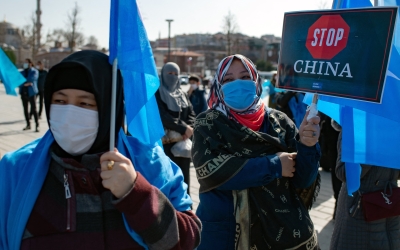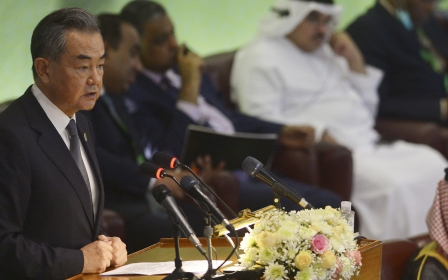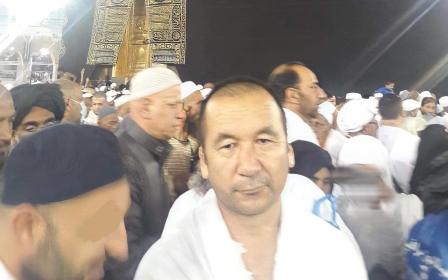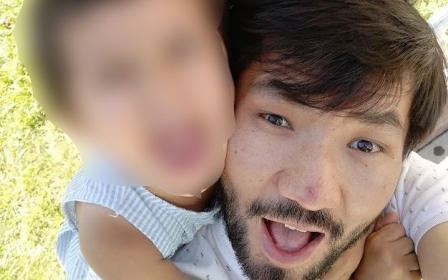Saudi Arabia: Uighur men at risk of deportation 'transferred' to Riyadh, says family
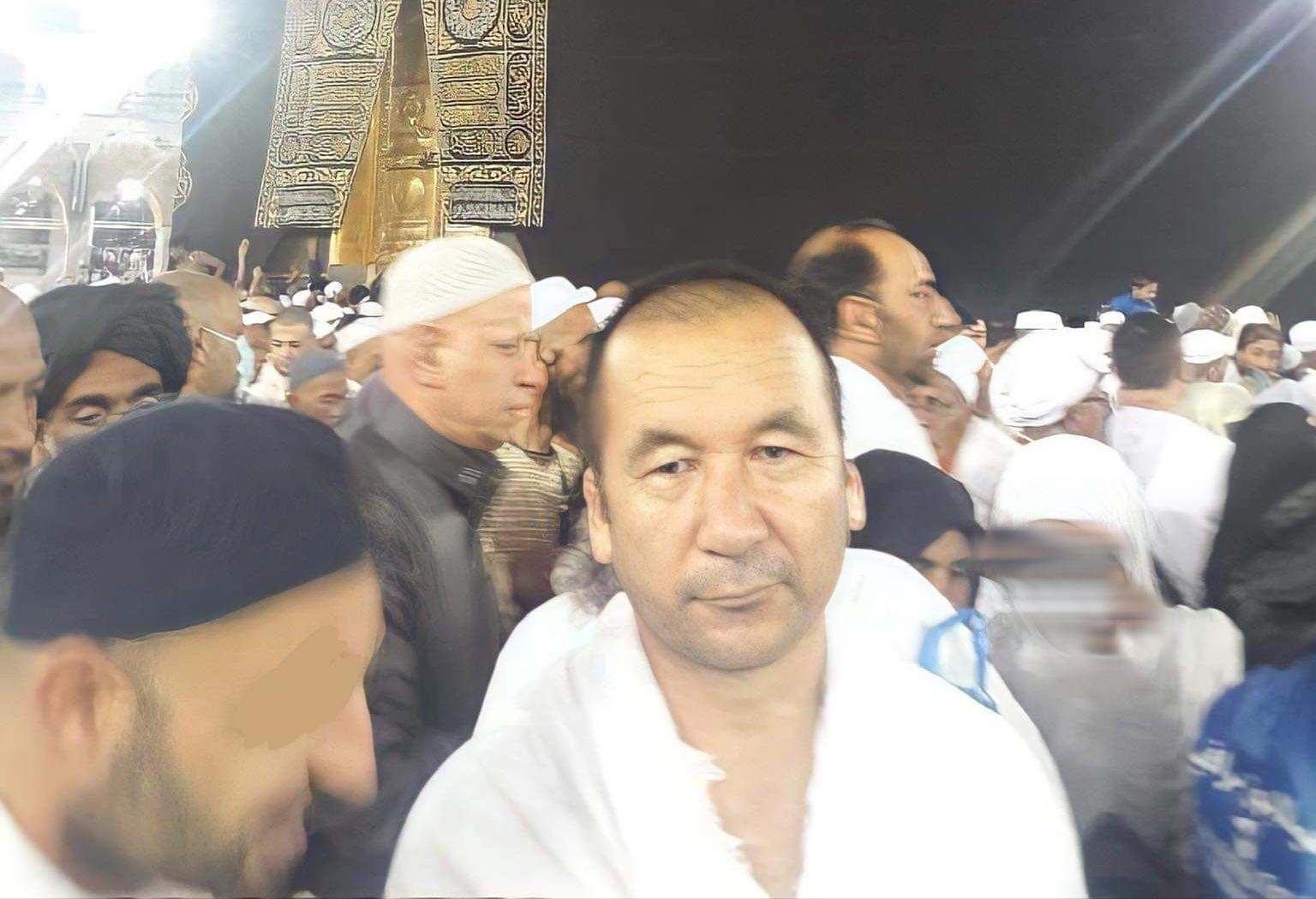
Human rights campaigners urged Saudi Arabia on Wednesday not to deport to China two Uighur men held in detention after they were moved to a holding facility in Riyadh, according to their families.
Aimidoula Waili, also known as Hemdullah Abduweli, and his friend Nuermaimaiti Ruze have been detained in Saudi Arabia since November 2020 without charge or trial after they went to perform a pilgrimage to Mecca.
'We have not heard our father's voice for over a year, and it pains us knowing that he could be sent to China and be separated from him forever'
- Nurin Hemdullah
Relatives of the two men told Amnesty International that Waili and Ruze were transferred to Riyadh on 16 March - a move they fear signals their imminent extradition to China.
"We are extremely worried about our father, what would happen to him if sent to China. We need everyone to help immediately to stop this extradition," Waili's daughter Sumeyye told Amnesty International.
"It is almost certain that my husband would be subjected to torture in China. Please stop this extradition," added Ruze's wife.
New MEE newsletter: Jerusalem Dispatch
Sign up to get the latest insights and analysis on Israel-Palestine, alongside Turkey Unpacked and other MEE newsletters
The Saudi authorities have not told the Uighur men if there are any charges against them or why Riyadh has detained them.
Who are the Uighurs and why is China targeting them?
+ Show - HideAccording to multiple reports, more than one million Uighurs, a Muslim-majority Turkic people, are currently being held in internment camps across Xinjiang in western China (or occupied East Turkestan as many Uighurs refer to the region).
Human Rights Watch said in September 2018 that up to 13 million Muslims in Xinjiang have been subjected to “forced political indoctrination, collective punishment, restrictions on movement and communications, heightened religious restrictions, and mass surveillance in violation of international human rights law”.
The Uighurs have have been particularly targeted since Communist party leader Chen Quanguo became Xinjiang’s party secretary in 2016. Under his leadership, a massive surveillance infrastructure was unrolled across the region designed to monitor and control the Muslim community.
Uighurs and ethnic Kazakhs have been routinely rounded up for practising their Islamic faith, including praying, observing Halal, or wearing clothes synonymous with being Muslim.
The Chinese government has even labelled Islam an “ideological illness” and has destroyed some mosques in the region. In the camps, detainees are forced to learn Chinese Mandarin, praise the ruling Chinese Communist Party and face recurrent psychological and physical abuse.
Uighur activists say that entire families have disappeared into the camps, or have been executed.
China has repeatedly denied allegations that it is persecuting the minority group, instead describing the camps as “vocational training centres” designed to counter religious extremism.
It also calls concerns raised by Uighur community members, human rights groups and others “unjustified” and an “interference in China’s internal affairs”.
Earlier this year, Waili's daughter Nurin Hemdullah and her sister told Middle East Eye that Waili was taken to Dhahban Central Maximum Security Prison in Jeddah.
Both relatives said a Saudi judicial official had seen their father in January and told him to be "mentally prepared" to be deported to China.
The women said they had spoken to a Uighur in Saudi Arabia monitoring the case, who said the judicial official confirmed the decision despite both men being accused of no crime in China or the kingdom.
"We have not heard our father's voice for over a year, and it pains us knowing that he could be sent to China and be separated from him forever," said Nurin.
If sent back to China, Waili and Ruze could face imprisonment and possible torture in detention camps suspected of holding Uighur men.
The Chinese government is accused of detaining more than one million Uighurs and other Muslim minorities in the eastern Xinjiang region and subjecting the community to abuses some have labelled a genocide. China denies all allegations of abuse.
Middle East Eye delivers independent and unrivalled coverage and analysis of the Middle East, North Africa and beyond. To learn more about republishing this content and the associated fees, please fill out this form. More about MEE can be found here.


